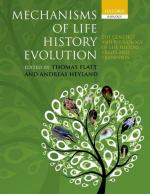|
This section contains 3,090 words (approx. 11 pages at 300 words per page) |

|
Overview
Physiology is the study of the function of living organisms and their components, including the physical and chemical processes involved. The eighteenth century has been referred to as the Age of Enlightenment, or the Age of Reason, when knowledge in general advanced, and especially that relating to science and medicine. During this time, discoveries in physiology expanded due to a group of investigators known as experimental physiologists.
The study of human anatomy had been advanced by the daring work of Leonardo da Vinci (1452-1519) and Andreas Vesalius (1514-1564) in the previous two centuries, yet the processes by which the internal systems worked were still an enigma. Eighteenth-century scientists built upon this work. Unlike modern scientists who have distinct specialties, these early investigators would master several diverse fields. Scholars such as René de Réaumur (1683-1757) studied many disciplines in...
|
This section contains 3,090 words (approx. 11 pages at 300 words per page) |

|


